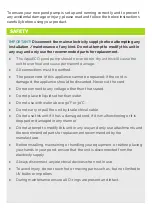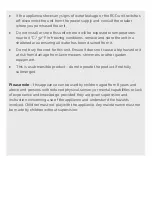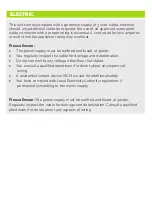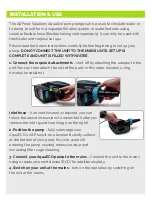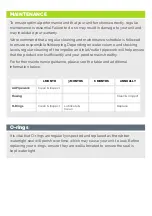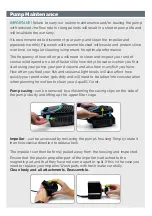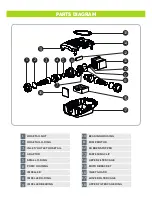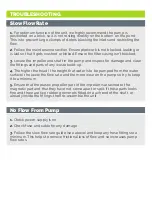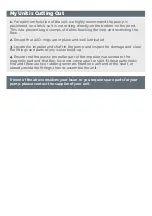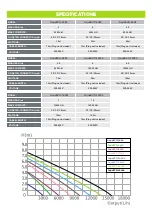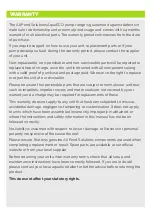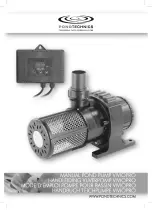
TROUBLESHOOTING
Slow Flow Rate
1.
For optimum function of the unit, we highly recommend the pump is
positioned on a brick, so it is not resting directly on the bottom on the pond.
This is to prevent large clumps of debris blocking the inlets and restricting the
flow.
2.
Follow the maintenance section. Ensure pipe work is not blocked, leaking or
is laid so that it gets crushed or kinked.
3. Locate the impeller and shaft in the pump and inspect for damage and clear
the fittings and parts of any waste build-up.
Keep the height that water is to be pumped from the water surface (called
Head) to a minimum. The higher the head the lower the flow rate and the
more wear on the pump.
5. Use the largest diameter, smoothest bore pond hose over the shortest
Slow Flow Rate
1.
For optimum function of the unit, we highly recommend the pump is
positioned on a brick, so it is not resting directly on the bottom on the pond.
This is to prevent large clumps of debris blocking the inlets and restricting the
flow.
2.
Follow the maintenance section. Ensure pipework is not blocked, leaking or
is laid so that it gets crushed or kinked. Ensure the filter casing isn’t blocked.
3.
Locate the impeller and shaft in the pump and inspect for damage and clear
the fittings and parts of any waste build-up.
4.
The higher the head ( the height that water is to be pumped from the water
surface) the lower the flow rate and the more wear on the pump so try to keep
it to a minimum.
5.
Ensure that the plastic propeller part of the impeller is attached to the
magnetic part and that they have not come apart or split. If these parts looks
fine and there are two rubber grommets fitted on each end of the shaft, or
already inside the fittings, then re-assemble the unit.
No Flow From Pump
1.
Check power supply is on.
2.
Check fuse and cable for any damage.
3.
Follow the slow flow rate guide (see above) and keep any hose fittings to a
minimum. This helps to remove frictional loss of flow and so increases pump
flow rates.


